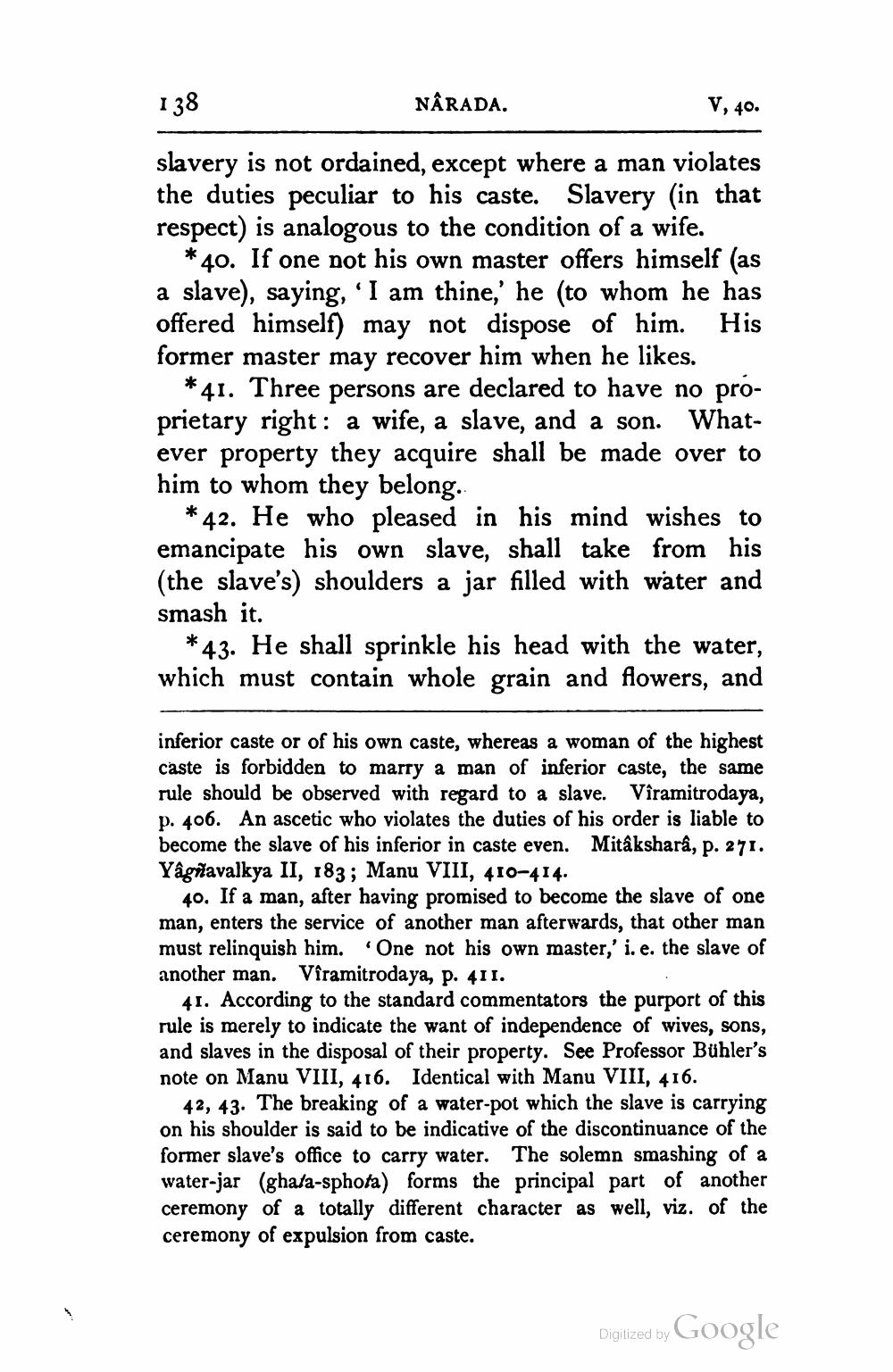________________
138
NARADA.
V, 40.
slavery is not ordained, except where a man violates the duties peculiar to his caste. Slavery (in that respect) is analogous to the condition of a wife.
*40. If one not his own master offers himself (as a slave), saying, 'I am thine,' he (to whom he has offered himself) may not dispose of him. His former master may recover him when he likes.
*41. Three persons are declared to have no proprietary right: a wife, a slave, and a son. Whatever property they acquire shall be made over to him to whom they belong.
*42. He who pleased in his mind wishes to emancipate his own slave, shall take from his (the slave's) shoulders a jar filled with water and smash it.
*43. He shall sprinkle his head with the water, which must contain whole grain and flowers, and
inferior caste or of his own caste, whereas a woman of the highest caste is forbidden to marry a man of inferior caste, the same rule should be observed with regard to a slave. Vîramitrodaya, p. 406. An ascetic who violates the duties of his order is liable to become the slave of his inferior in caste even. Mitâkshara, p. 271. Yagñavalkya II, 183; Manu VIII, 410-414.
40. If a man, after having promised to become the slave of one man, enters the service of another man afterwards, that other man must relinquish him. One not his own master,' i.e. the slave of another man. Vîramitrodaya, p. 411.
41. According to the standard commentators the purport of this rule is merely to indicate the want of independence of wives, sons, and slaves in the disposal of their property. See Professor Bühler's note on Manu VIII, 416. Identical with Manu VIII, 416.
42, 43. The breaking of a water-pot which the slave is carrying on his shoulder is said to be indicative of the discontinuance of the former slave's office to carry water. The solemn smashing of a water-jar (ghata-sphota) forms the principal part of another ceremony of a totally different character as well, viz. of the ceremony of expulsion from caste.
Digitized by Google




